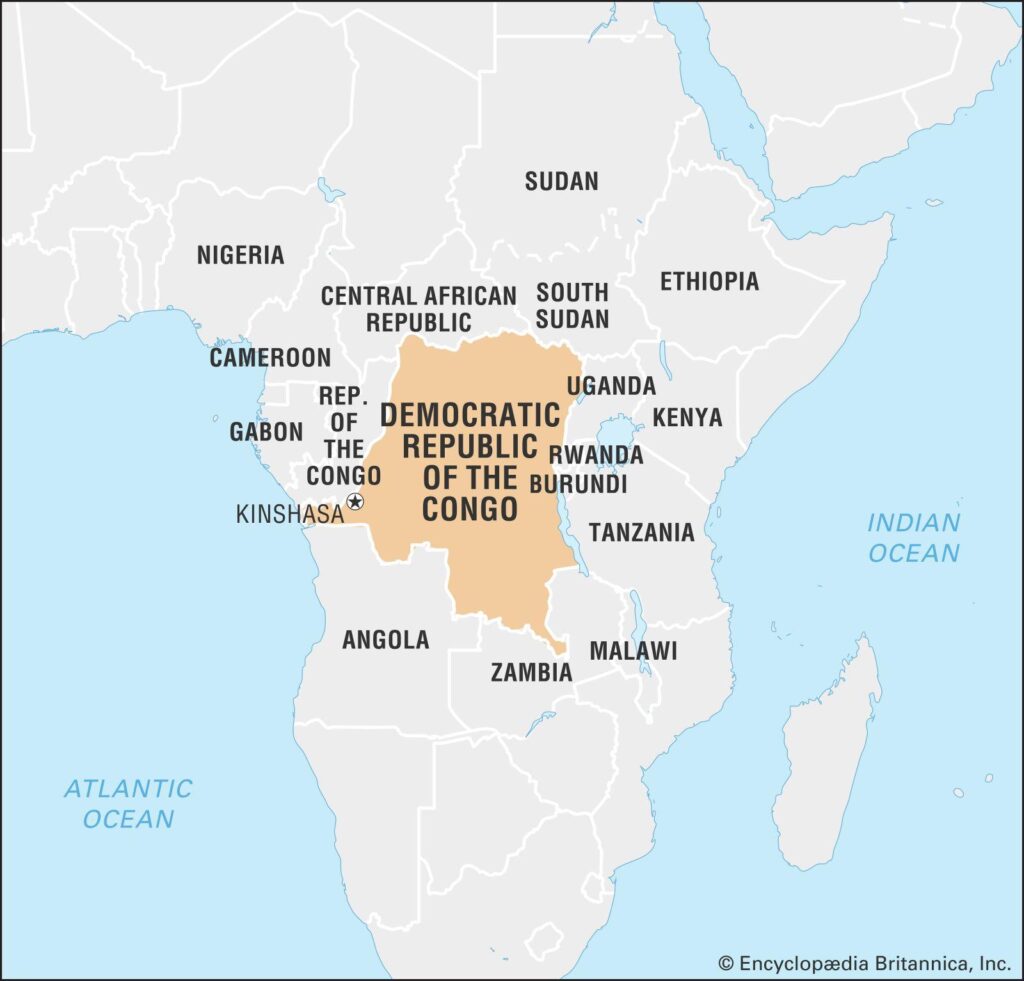In the wake of devastating floods that swept through Kinshasa, the capital of the Democratic Republic of the Congo, government officials are intensifying efforts to combat illegal construction practices that have exacerbated the city’s vulnerability to natural disasters. The recent inundation, which resulted in tragic loss of life and extensive damage to property, has brought renewed scrutiny to the unregulated building activities that proliferate in the region. As authorities embark on a comprehensive crackdown aimed at enforcing building regulations, questions arise about the efficacy of such measures in preventing future calamities. This article explores the implications of this initiative, the challenges ahead, and the broader context of urban development in one of Africa’s largest cities.
DR Congo Implements Crackdown on Unauthorized Structures in Wake of Kinshasa Floods
In response to the devastating floods that recently swept across Kinshasa, the government of the Democratic Republic of Congo has launched a rigorous initiative targeting unauthorized constructions within the urban area. The heavy rains that resulted in widespread flooding have underscored the pressing issue of illegal buildings contributing to inadequate drainage systems, exacerbating the impact of such natural disasters. Officials have reported that many of these structures were erected without proper permits, violating zoning regulations and posing significant threats to public safety.
The crackdown will involve the following key measures:
- Identification of Illegal Structures: Local authorities are conducting inspections across Kinshasa to catalog unauthorized buildings.
- Demolition Orders: Immediate demolition orders will be issued for those found in violation of construction codes.
- Public Awareness Campaigns: Initiatives to educate citizens on the risks associated with illegal construction are being launched.
| Flood Impact | Action Taken |
|---|---|
| Widespread displacement of families | Increased patrol and regulation of construction sites |
| Damage to infrastructure | Review of urban planning and zoning laws |
| Public safety risks | Establishment of emergency response teams |
Government Urges Local Authorities to Strengthen Building Regulations and Community Awareness
The aftermath of the devastating floods in Kinshasa has prompted the government to take decisive action against illegal constructions, a growing concern that has been exacerbated by poor building regulations. Authorities are now urging local governments to implement stricter building codes to ensure that new and existing structures adhere to safety standards. This initiative aims to enhance the resilience of communities against natural disasters and to mitigate risks effectively. Key measures being discussed include:
- Regular inspections: Ensuring that buildings comply with established regulations.
- Public education campaigns: Raising awareness about the dangers of illegal constructions.
- Collaboration with NGOs: Partnering with non-governmental organizations to promote safer building practices.
To support these efforts, local authorities are also encouraged to engage communities in discussions about sustainable development. Educational workshops are being planned to highlight the importance of compliance with regulatory standards, emphasizing the role of community members in safeguarding their environment. The government believes that the involvement of residents is crucial for long-term success in preventing further tragedies. A recent table outlining the proposed regulatory changes and community engagement initiatives suggests a structured approach moving forward:
| Proposed Changes | Description |
|---|---|
| Enhanced building codes | Stricter standards for construction materials and techniques. |
| Mandatory permits | Enforcement of a permit system to oversee construction projects. |
| Community workshops | Sessions to educate the public on safe building practices. |
| Emergency response training | Programs designed to prepare communities for disaster response. |
Experts Call for Sustainable Urban Planning to Mitigate Future Flood Risks in Kinshasa
Following a series of devastating floods in Kinshasa, experts emphasize the urgent need for innovative and sustainable urban planning practices to prevent similar disasters in the future. With rapid urbanization exacerbating the city’s vulnerabilities to climate-related events, urban planners and environmentalists are advocating for a comprehensive approach that incorporates the latest forecasting technologies and resilient infrastructure. Key elements of this strategy include:
- Green Spaces: Integrating parks and wetlands that can absorb excess rainwater.
- Drainage System Enhancement: Upgrading and expanding stormwater drainage systems to handle increased rainfall.
- Community Engagement: Involving local communities in planning processes to ensure that solutions are culturally and geographically appropriate.
In tandem with these initiatives, local authorities are being urged to enforce stricter regulations on land use and construction practices to curb illegal developments that obstruct natural water flow. The implementation of these regulations, coupled with the promotion of sustainable building practices, could significantly reduce flooding risks. An assessment table outlining the proposed actions and their expected impacts can provide clarity on the path forward:
| Action | Expected Impact |
|---|---|
| Enhancing drainage systems | Improved water management during heavy rains |
| Creating green spaces | Increased capacity for floodwater absorption |
| Enforcing construction regulations | Reduced illegal developments and more sustainable urban growth |
Future Outlook
In the wake of the devastating floods that struck Kinshasa, the Congolese government is taking decisive action to mitigate risks associated with illegal constructions that exacerbate the impact of such disasters. With the recent loss of life serving as a stark reminder of the vulnerabilities faced by many in the capital, officials are emphasizing the need for stringent enforcement of urban planning regulations. As the city begins to recover, this initiative not only aims to prevent future tragedies but also highlights the broader challenges of urbanization and governance in the Democratic Republic of Congo. The road to rebuilding will not be easy, but the commitment to ensuring safer living conditions reflects a critical step toward a more resilient future for Kinshasa’s residents. The situation remains fluid, and as authorities navigate the complexities of the reconstruction process, the world will be watching closely.
